|
(c)
Copyright Bartók Archives of the Hungarian Academy of Sciences
Institute for Musicology, 2004-2005
Dichotomies
|
| |
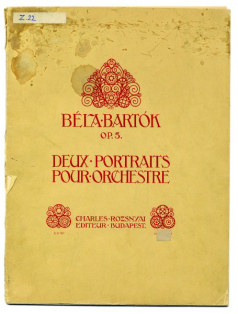 |
|
“Kodály and I
wanted to make a synthesis of East and West … Because of
our race, and because of the geographical position of
our country, which is at once the extreme point of the
East and the defensive bastion of the West, we felt this
was a task we were well fitted to undertake. But it was
your Debussy, whose music had just begun to reach us,
who showed us the path we must follow. And that, in
itself, was a curious phenomenon when one recalls that
at that time so many French musicians were still held in
thrall by the prestige of Wagner. ... Debussy’s great
service to music was to reawaken among all musicians an
awareness of harmony and its possibilities. In that, he
was just as important as Beethoven, who revealed to us
the meaning of progressive form, and as Bach, who showed
us the transcendent significance of counterpoint. ...
Now, what I am always asking myself is this: is it
possible to make a synthesis of these three great
masters, a living synthesis that will be valid for our
own time?”
Serge Moreux, Béla Bartók (London,
1953), 92
On one of these days, as if receiving inspiration
from above, I suddenly realized the indubitable
necessity that your piece can only consist of 2
movements. 2 contradictory images: that’s all.
Bartók to Stefi Geyer about his early
Violin Concerto written for her, December 21, 1907,
in Béla Bartók, Briefe an Stefi Geyer (Basel, 1979), 56,
facs. 21
|
|
I began to compose the ballet even before the war,
then I put it aside for a long time. I went through a
lot of anxiety. Last season, István Strasser performed
my symphonic work Two Portraits; it was the first time I
heard the second part (“Caricature”) played by
orchestra. That inspired me to go on with the score of
the The Wooden Prince...
Bartók, “About The Wooden Prince”
(1917), in Béla Bartók Essays, ed. Benjamin Suchoff
(London, 1976), 406, revised
It may sound peculiar but I must admit that the
preterition of my one-act opera Bluebeard’s Castle prompted me to
write The Wooden Prince. It is common knowledge
that this opera of mine failed at a competition; the
greatest hindrance to its stage production is that the
plot offers only the spiritual conflict of two persons
and the music is confined to the depiction of that
circumstance in abstract simplicity. Nothing else
happens on stage. I am so fond of my opera that when I
received the libretto of the pantomime from Béla Balázs,
my first idea was that the ballet—with its spectacular
picturesque, richly variegated actions—would make it
possible to perform these two works the same evening.
“About The Wooden Prince,” in Béla
Bartók Essays, ed. Benjamin Suchoff (London, 1976), 406
|
|
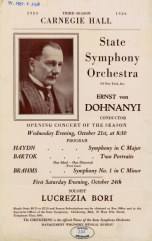
|
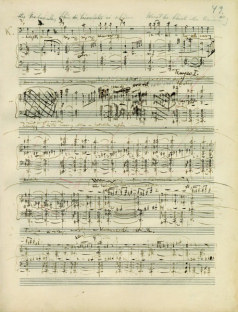 |
|
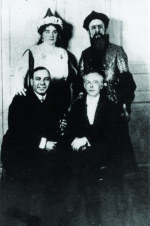
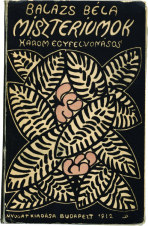
The constructive strength of the music [of
Bluebeard’s Castle] asserts itself even better if we
hear The Wooden Prince after it. This ballet
balances the disconsolate adagio of the opera
with a playful, animated allegro contrast. The
two together merge into one, like two movements of a
giant symphony.
Zoltán Kodály, “Béla Bartók’s First
Opera” (1918), in The Selected Writings of Zoltán Kodály
(Budapest, 1974), 85, slightly revised
|
|
|
|
|

|
| |
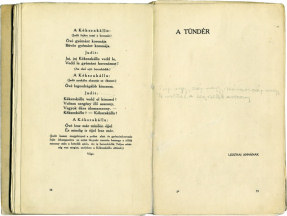
|
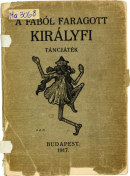
|
The reviews of Bluebeard were
better then those of the Wooden Prince...
However, this year’s greatest success for me was
not this, but rather my success in entering into
a long-term agreement with a first-rate
publisher.
As far back as January “Universal Edition”
(Vienna) made me an acceptable offer. Now, after
protracted negotiations, we have agreed on
everything... This is of great significance
because for approx. 6 years nothing of mine has
appeared—thanks to our home publishers—and
because a foreign publisher has perhaps never
before approached an Hungarian musician with
such an offer.
To Ioan Buşiţia, [June 6, 1918], in Bartók
Letters. The Musical Mind,
ed. Malcolm Gillies
and Andrienne Gombocz, unpublished
|
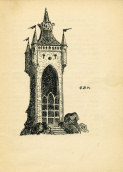
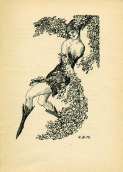
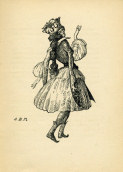
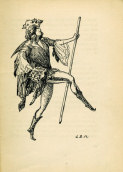 |
|
|
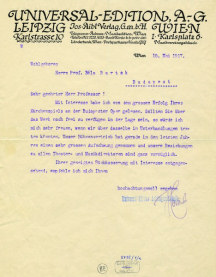

As regards the lecture, I should like to ask you (1) not to overemphasize the folkloristic aspect of
my work;
(2) to underline that I never use folk melodies in my
stage works just as I never do in my other original compositions; (3) that my music is throughout tonal and (4) has nothing to do with the “objective” and
“impersonal” tendency (so in the last analysis it is not “modern” at all!)
[.]
Bartók giving advice to conductor Ernst
Latzko, December 16, 1924, German original
in Béla Bartók Briefe, ed. János Demény (Budapest,
1973), vol. 2, 50
|
|
|
| |

|
|